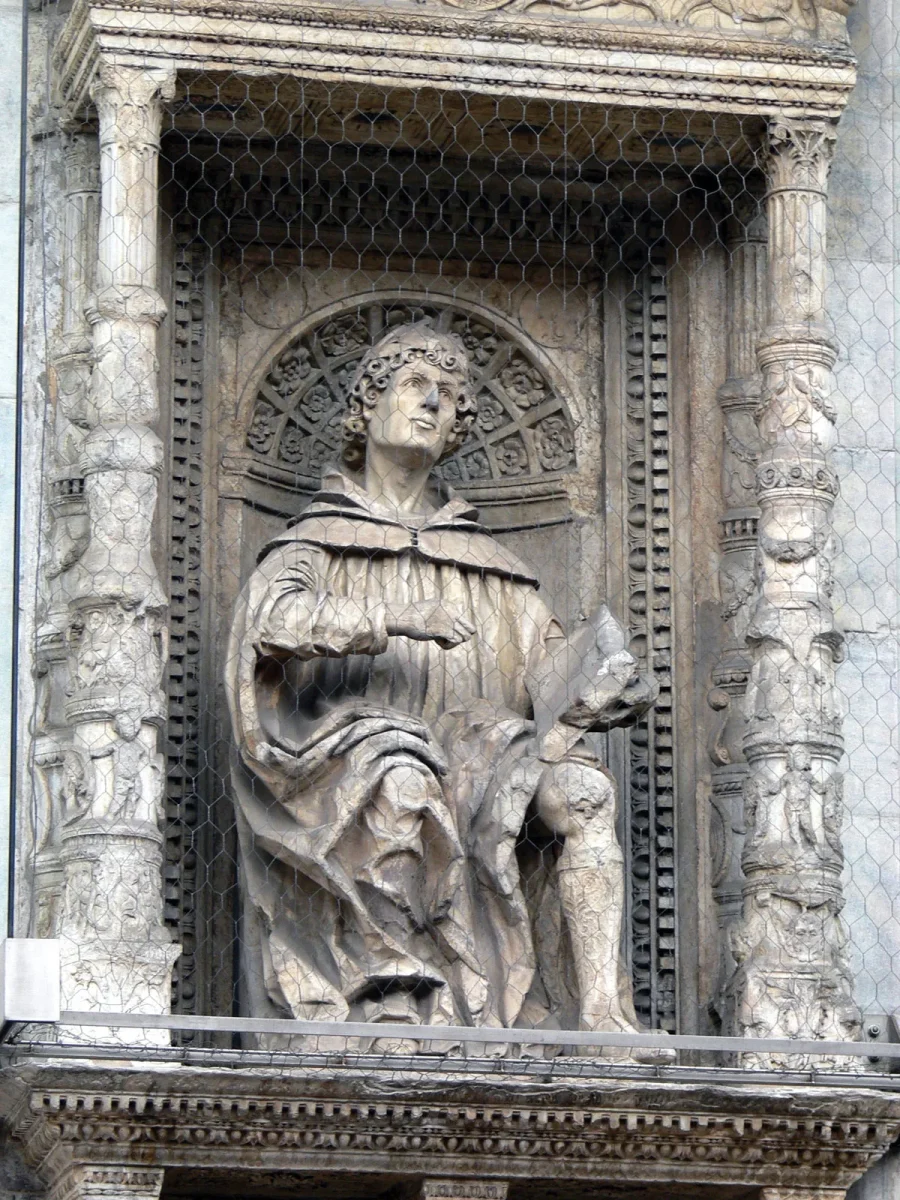Pliny the Younger was a Roman legislator, magistrate and author famous for his Epistulae, a collection of letters which serve as a comprehensive collection providing insight into life during the middle Roman Empire. Pliny witnessed the eruption of Mount Vesuvius in 79 CE and documented the tragedy in his letters, which remain some of the most accurate and best described historical recordings of the eruption, providing a detailed and accurate description of the event that would destroy Pompeii, Herculaneum et Stabiae, among others. Pliny also played a key role in the Roman government by serving as a high-ranking official under multiple emperors, ultimately serving as governor of the province Bithynia et Pontus.
Early Life
Born Gaius Caecilius Cilo in Novum Comum, northern Italy around 61 AD, Pliny was the son of Lucius Caecilius Cilo and grandson of Senator Gaius Caecilius. His father died when Pliny was still young; his guardian, Lucius Verginius Rufus, would later be famous for defeating a rebellion against Nero. Pliny chose to pursue an education in Rome, where he was taught rhetoric by the famous Quintilian. Pliny became closer to his uncle, Pliny the elder, while pursuing his education; when Pliny the Elder died in 79 AD; by then, he had adopted the young Gaius, whose name was now Gaius Plinius Caecilius Secundus.
Career and Writings
By birth, Pliny was of equestrian rank, meaning he was fairly high up on the social hierarchy in Ancient Rome. He began his career at the age of 18, soon after his uncle’s death, and diverged off from the typical equestrian route, which was to pursue lower administrative, military, or financial roles rather than legal or high public office. Unlike most equestrians, Pliny was elected quaestor, which was a public official in Ancient Rome. Pliny’s active role in the legal system built his reputation as a well-known prosecutor during the trials of many provincial governors.
Pliny wrote numerous small works and poems when he was younger, though the majority of them are lost. Pliny’s only surviving public spoken work that survives is the Panegyricus Traiani, which was delivered in the Senate to praise Emperor Trajan’s career.
Pliny’s biggest work were his Epistulae, which is Latin for “letters.” These letters were written to his friends and associates, including insight on Roman history and everyday life in the Roman Empire. Furthermore, when Pliny was the governor of Bithynia et Pontus, he wrote to Emperor Trajan asking how they should deal with Christians, including trials he had conducted of Christians, and how they should be treated. Pliny saved these letters, which makes them the earliest Roman documents that address early Christians. These letters influenced subsequent writers and philosophers, such as St. Augustine and Sidonius Apollinaris, a Gallo-Roman aristocrat, and appealed to many of the Enlightenment thinkers. Details from the letters on Roman society, political and legal systems would also influence laws and legal systems in many countries today.
What do I think?
I first encountered Pliny and his letters when I was drafting my midterm slideshow for Latin class. From there, I instantly became intrigued by his letters, as they are not only relevant to almost all aspects of Roman life, but reading his letters feels like a real account of what happened, rather than just information being reported. His letter about Mount Vesuvius is not just a letter recounting the catastrophe, but also shows the fear, loss and devastation Pliny went through. He wasn’t necessarily trying to be a historian; instead he was a normal (upper-class) man writing to friends and family, seeking critiques on how he could improve, wanting advice on taking decisions, and trying to understand the natural world around him. These are all things that many of us do on a daily basis, and it’s wild to think that, centuries later, we ask the same questions Pliny did about how to ease disputes, what’s the best way to be ethical in a certain situation, and how we should go about our daily lives. After reading Pliny’s writings, I feel that historical accounts made now should also be personal. They should be as if you are writing to explain to a friend, similar to a diary entry.
As clearly seen from Pliny, even the most personal writings and unintentionally leave a lasting remark for the future, influencing ethics, displaying human emotions during a certain stressful time and serve as example on how to deal with people morally and justly.
Works Cited
- Pliny the Younger (Wikipedia) (Britannia) (World History Encyclopedia)
- Pliny the Elder (Britannica)
- Sidonius Apollinaris (Wikipedia)
